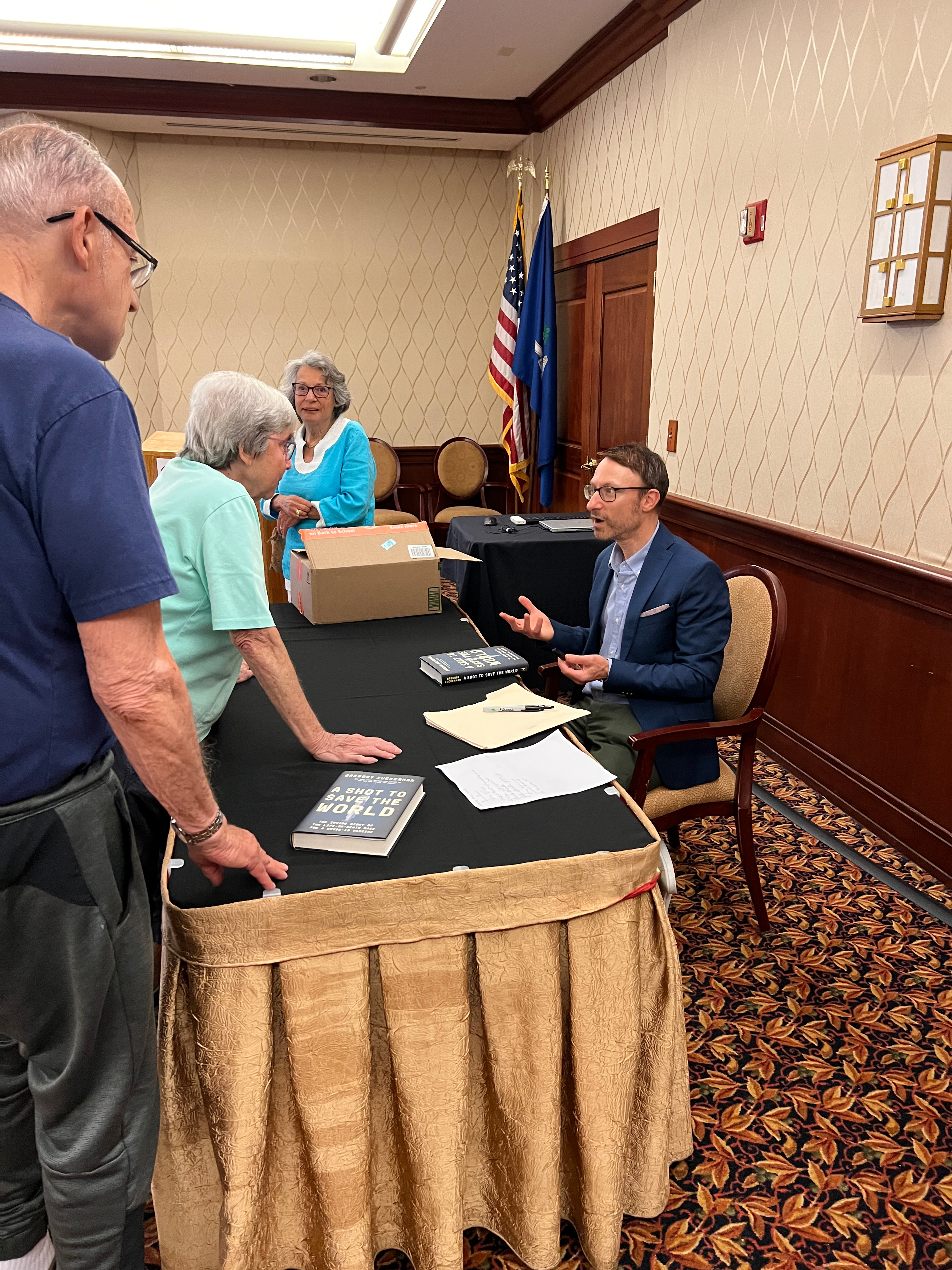
It’s well established that physical activities are important for older adults to maintain their health, but equally valuable are activities that stimulate the brain to support cognitive health. “It’s extremely important to do everything you can to exercise your mind,” says 88-year-old Stephen Myers, a resident at Edgehill, a continuing care retirement community (CCRC) in Stamford, Conn. “It sounds like a truism but the more you use your mind the sharper it is.”
That’s why communities like Edgehill offer comprehensive programming in both physical fitness and cognitive wellbeing. Myers, for example, is a member of the Greenwich Retired Men’s Association (RMA) and organizes screenings at Edgehill of recorded lectures by the RMA’s guest speakers. He recently arranged a recorded RMA talk given by a supreme court judge that was heavily attended by Edgehill residents.
“We also get live speakers that range over every topic,” says Myers, a retired physicist. “Residents frequently hear invited experts speak on such topics as art, opera, history, health, climate change and foreign affairs. They’re serious topics and moderately technical.”
The resident Legislative Committee arranges for candidates for local, state and federal offices to present their views and answer questions from the Edgehill audience, while the Social Action Committee arranges volunteer and fundraising opportunities for residents to support the greater community. Two Edgehill associates also run group lectures and individual coaching to help residents master technology topics, like operating their smart phones, laptop computers and other digital devices.
Studies show that staying cognitively engaged helps adults fend off dementia and other forms of decline. Research also suggests that socialization plays a role in lower mortality rates and better mental health. In other words, reading a book is great for the brain but discussing that book in a group, like in Edgehill’s virtual reading and discussion group, brings added benefits.
Sam Samaha stays both physically and mentally active with regular exercise and a full schedule of conversations, lectures, and—even at 98 years old—museum trips to New York City. He’s a regular attendee at Edgehill’s art lectures, which have helped him understand art in a new way.
“Going to a museum can be a real learning experience,” he says, taking advantage of trips to the Metropolitan Museum of Art with lecturer Helane Rheingold. “She’ll take us through certain wings, encouraging us to look at things differently. Before, I’d go to museums, and I’d rush by. Now we take the time to slow down and really see what the painter was trying to say.”
Edgehill also enjoys music and ballet performances, group-based strategy games like bridge and mahjong, knitting groups, art classes and much more. In particular, Myers and Samaha look forward to the annual resident art show which features paintings, photography and sculpture. “Every year all of us are amazed at the quality and imagination that goes into their work,” says Myers.
“Edgehill sometimes feels like a university,” says Jennings. “We have so many accomplished residents who share their interests and life experiences with their neighbors, who in turn are always eager to learn something new. They enrich each other’s lives.”